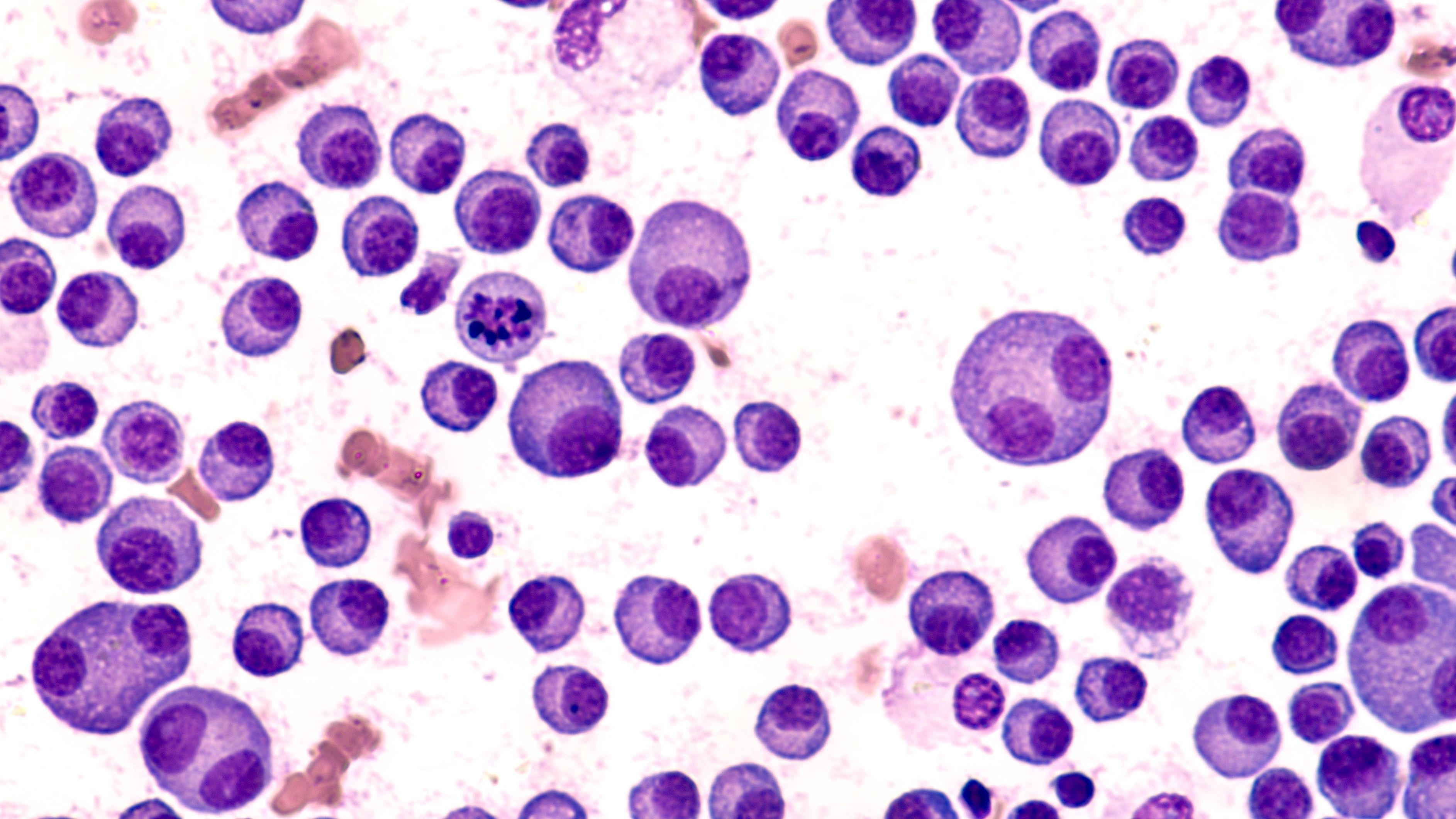- The FDA has granted a fast track designation to IDP-023, a natural killer (NK) cell therapy, for the treatment of patients with non-Hodgkin lymphoma and multiple myeloma.
- Fast track designation is given to drugs that treat serious conditions or fill unmet needs.
- Indapta Therapeutics, the manufacturer of IDP-023, may be eligible for more frequent meetings with the FDA, as well accelerated approval, and priority review for biologics license applications of IDP-023.
IDP-023 has been granted a fast track designation by the FDA in non-Hodgkin lymphoma and multiple myeloma.1
“This designation highlights the promise of Indapta’s highly potent NK cell platform and will further accelerate clinical development of our lead drug candidate, IDP-023, for 2 of the largest unmet needs in B-cell driven blood cancers, non-Hodgkin lymphoma and multiple myeloma,” said Mark Frohlich, MD, chief executive officer of Indapta, in a press release.
Fast track designation is given to drugs that treat serious conditions or fill unmet needs. Indapta may be eligible for more meetings with the FDA, and applications for IDP-023 can be granted accelerated approval or priority review.
Phase 1 Trial of IDP-023
Trial Name: IDP-023 as a Single Agent and in Combination With Antibody Therapies in Patients With Advanced Hematologic Cancers
ClinicalTrials.gov Identifier: NCT06119685
Sponsor: Indapta Therapeutics, INC.
Recruitment Contact: trials@indapta.com
About the Phase 1 Trial of IDP-023
IDP-023 is an NK cell therapy that is currently in a phase 1/2 trial (NCT06119685). Patients either receive IDP-023 as a monotherapy or in combination with rituximab (Rituxan) or daratumumab (Darzalex).2 The trial has an estimated enrollment of 128 patients and is currently recruiting at centers in Minnesota, New York, Oregon, Texas, and Virginia.
The primary end points of the dose-escalation period are incidence of adverse events (AEs), incidence of dose-limiting toxicities (DLTs) with IDP-023 monotherapy, incidence of DLTs with the combination of IDP-023 and rituximab or daratumumab, nature of DLTs, and maximum tolerated dose. The primary end points of the expansion period in multiple myeloma are objective response rate (ORR), complete response rate, stringent complete response, very good partial response, and partial response. ORR is the primary end point for non-Hodgkin lymphoma in the expansion period. Secondary end points include pharmacokinetics, ORR, and incidence of AEs.
Locations
- Minneapolis, MN: University of Minnesota
- New York, NY: NYP/Weill Cornell Medical Center
- Portland, OR: Providence Cancer Institute Franz Clinic
- Houston, TX: University of Texas MD Anderson Cancer Center
- Fairfax, VA: NEXT Oncology Virginia
Patients are eligible for study enrollment if they have an ECOG performance status of 0 or 1 and a life expectancy of 12 weeks or longer. Patients with multiple myeloma must have relapsed or refractory disease after 3 or more lines of therapy, and patients with non-Hodgkin lymphoma must have failed 2 or more lines of chemotherapy. Patients are excluded from the trial if they have impaired cardiac function, history of significant cardiac disease, active infection, or untreated central nervous system metastasis.
Initial findings from the study are expected to be reported in the second half of this year.1
REFERENCES:
1. Indapta Therapeutics receives U.S. FDA fast track designation for lead clinical drug candidate IDP-023 for non-Hodgkin’s lymphoma and myeloma. News release. Indapta Therapeutics. February 29, 2024. Accessed February 29, 2024. http://tinyurl.com/43fhfeba
2. IDP-023 as a single agent and in combination with antibody therapies in patients with advanced hematologic cancers. ClinicalTrials.gov. Updated February 28, 2024. Accessed February 29, 2024. https://clinicaltrials.gov/study/NCT06119685
